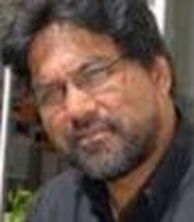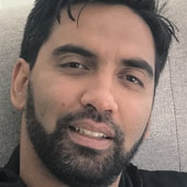- Home
- About WVN
-
WVN Issues
- Vol. 1 No. 1 (Oct. 2017) >
- Vol. 2 No. 1 (Feb. 2018) >
- Vol. 2 No. 2 (Jun. 2018) >
- Vol. 2 No. 3 (Oct. 2018) >
- Vol. 3 No. 1 (Feb. 2019) >
- Vol. 3 No. 2 (Jun. 2019) >
- Vol. 3 No. 3 (Oct. 2019) >
- Vol. 4 No. 1 (Feb. 2020) >
- Vol. 4 No. 2 (Jun. 2020) >
- Vol. 4 No. 3 (Oct. 2020) >
- Vol. 5 No. 1 (Feb. 2021) >
- Vol. 5 No. 2 (Jun. 2021) >
- Vol. 5 No. 3 (Oct. 2021) >
- Vol. 6 No. 1 (Feb. 2022) >
- Vol. 6 No. 2 (Jun. 2022) >
- Vol. 6 No. 3 (Oct. 2022) >
- Vol. 7 No. 1 (Feb. 2023) >
- Vol. 7 No. 2 (Jun. 2023) >
- Vol. 7 No. 3 (Oct. 2023) >
- Vol. 8 No. 1 (Feb. 2024) >
-
Events
- CIES 2023, Feb. 14-22, Washington D.C., USA
- ICES 4th National Conference, Tel Aviv University, Israel, 20 June 2021
- 2022 Virtual Conference of CESHK, 18-19 March 2022
- ISCEST Nigeria 7th Annual International Conference, 30 Nov.-3 Dec. 2020
- 3rd WCCES Symposium (Virtually through Zoom) 25-27 Nov. 2020
- CESA 12th Biennial Conference, Kathmandu, Nepal, 26-28 Sept. 2020
- CESI 10th International Conference, New Delhi, India, 9-11 Dec. 2019
- SOMEC Forum, Mexico City, 13 Nov. 2018
- WCCES Symposium, Geneva, 14-15 Jan. 2019
- 54th EC Meeting, Geneva, Switzerland, 14 Jan. 2019
- XVII World Congress of Comparative Education Societies, Cancún, Mexico, 20-24 May 2019
- ISCEST Nigeria 5th Annual Conference, 3-6 Dec. 2018
- CESI 9th International Conference, Vadodara, India, 14-16 Dec. 2018
- ICES 3rd National Conference, Ben-Gurion University, Israel, 17 Jan. 2019
- WCCES Retreat & EC Meeting, Johannesburg, 20-21 June 2018
- WCCES Symposium, Johannesburg, 21-22 June 2018
- 5th IOCES International Conference, 21-22 June 2018
- International Research Symposium, Sonepat, India, 11-12 Dec. 2017
- WCCES Info Session & Launch of Online Course on Practicing Nonviolence at CIES, 29 March 2018
- WCCES Leadership Meeting at CIES, 28 March 2018
- 52nd EC Meeting of WCCES, France, 10-11 Oct. 2017
- UIA Round Table Asia Pacific, Chiang Mai, Thailand, 21-22 Sept. 2017
- Online Courses
|
Introduction
At the recent Philosophy of Education Society of Great Britain Annual Conference of 2018, it was again brought to mind that talk of an African philosophy of education is irrelevant as such a philosophy of education does not exist. Equally, claims cannot be made for a Muslim (or Islamic) philosophy of education on the grounds that like African philosophy of education, such philosophies of education do not have the legacies of what it means to practice philosophy of education – at least not according to the Anglo-Saxon tradition. In this short article, we accentuate what makes philosophy of education according to the Anglo-Saxon tradition distinctive and then ascertain as to whether African and Muslim philosophies of education can be considered commensurate with such a philosophy of education. Our argument is two-fold: Firstly, we show that an African philosophy of education, as espoused through a novel massive open online course over the past two years (MOOC) is both analytical and pragmatic; and secondly, in reference to a Quranic notion of intellectual action, namely ijtihad, we make an argument for Muslim philosophy of education as being in consonance with what it means to do any form of philosophy of education. On the distinctiveness of Anglo-Saxon philosophy of education One of us, has been attending the annual Philosophy of Education Society of Great Britain (PESGB) conference since 2003 and for fifteen years has been associated with the said organisation. What has been fairly obvious from PESGB’s papers at the conference and publications over more than fifty years, has been a distinct allegiance to analytical inquiry made famous by scholars such as Paul Hirst and Richard Peters (1970), in particular, two of the founder members of the society. In short, if one wants to understand the meanings of concepts, one has to know the underlying rationales that constitute or make up such concepts. The latter approach to doing philosophy of education implies ascertaining reasons that make concepts what they are and then to examine the implications of such reasons for education. As far as we know, such an approach to doing philosophy of education has not been abandoned by many of the members of the society and with some adaptations, analytical inquiry has remained the most used approach to meaning making since the heydays of conceptual analysis pioneered by Peters and Hirst (1970). Such an approach to philosophy of education has been highly attractive for many, including ourselves, as knowing what concepts mean implies understanding reasons that constitute them (concepts). In this way, one would get to know as to why and how these reasons manifest in human practices, such as education, teaching and learning, and citizenship. Hence, what analytical inquiry does, is to acquaint one with reasons as to why concepts are what they are, and then to ascertain as to why and how such reasons manifest in human actions. Thus, knowing reasons that make education what it is, would give one some idea of how the concept is understood, and also how such constitutive reasons unfold and guide human practices. For instance, analytical philosophers of education would argue that engagement is the reason as to why education is what it is, and then they would further examine as to how and why the rationale of engagement manifest in ensuing human practices. It might be that the engagement among humans results in more democratic ways of being and acting and this would lead analytical philosophers of education to argue that engagement is the rationale for the concept of education and democratic action is perhaps a way in which such a form of engagement manifests in human practices. The question arises: is such an understanding of philosophy of education incommensurate with African philosophy of education? We shall now address the latter question in the section that follows. Cultivating an African philosophy of education Our understanding of philosophy of education is based on an understanding that one has to find reasons that make concepts what they are and then to examine its implications for education. Such a view of philosophy of education finds support in the seminal thoughts of Nic Burbules and Kathleen Abowitz (2003), who posit that philosophy of education is about finding reasons as to why things are what they are and then to examine the implications of such reasons for education (Burbules & Abowitz, 2003). In fact, it would not be unusual to associate the thoughts of Nic Burbules, who has been editor of the renowned Educational Theory journal published under the auspices of the John Dewey Society, with leading scholarship in philosophy of education. Pursuant to the afore-mentioned explication of philosophy of education that seems to be in tune with the views on philosophy of education espoused by PESGB, we aver that African philosophy of education is constituted by reasons as to why the concept is what it is. Through our MOOC (2016) we have shown that such a philosophy of education involves, identifying major problems on the African continent such as military dictatorships, ethnic violence and xenophobia, famine and drought, reconciliation, and university student protests. And, getting to know the reasons as to why the afore-mentioned problems are what they are would be to apply one strand of what we refer to as African philosophy of education. A second strand of doing such a philosophy of education invariably involves examining what the implications of such problems and their reasons are for education. For example, after we have analysed some of the reasons that underscore a problem on the continent such as a military dictatorship, we would then examine what the implications of the latter would be for education. Thus, we have found, through our MOOC that an underlying reason as to why military dictatorships on the continent persist is that such a form of political governance is aimed at excluding people (Africans) from participating deliberatively in societal matters. Such a form of political authority is not only exclusively imposed on masses of people, but people are also coerced to adhere unquestioningly to the authority of a dictatorship. The educational implications would be that deliberative action among students and university scholars would be discouraged and undermined and people are not obliged to critique and take issue with political authority. The point about this example is, that an African philosophy of education enables one to understand what constitutes major problems on the continent and how these problems manifest in human practices that are obviously detrimental to any form of legitimate human engagement. Cultivating an African philosophy of education is unique in the sense that problems are identified on the continent of Africa and of relevance to the African situation. And, when reasons are found that underscore such problems then the possibility exists to find out how educational relationships would be organised in relation to the reasons acquired. Such a form of African philosophy of education at once brings us into the presence of legitimate problems and ways as to how such problems could be resolved. Of course, as we have argued for in the MOOC (2016), problems can be addressed only in relation to making an argument for deliberatively democratic human relations on the basis that deliberation not only brings multiple and diverse participants into one another’s presence and by implication in communication, but also that through listening and talking back problems have a more plausible chance of being resolved. It is through an African philosophy of education that human problems can be, firstly analysed as major societal problems on the continent; and secondly, be considered in such a way that the implications of such problems for education would be examined. Now considering that a Muslim philosophy of education is also a specific strand of African philosophy of education – more than a third of the northern Africa population is Muslim, and rich intellectual Muslim resources are associated with some African universities – it would be apposite to offer an account of why Muslim philosophy of education is a legitimate form of philosophy of education that is seemingly in harmony with what it means to do philosophy of education. Towards a notion of Muslim philosophy of education Our reading of the primary text of Islamic philosophy of education, the Quran, suggests that the source of revelation for Muslims is replete with verses (ayat) that encourage people to strive diligently in the way of Allah Almighty (jahidu) with their wealth, property and lives. Similarly, the Quran is emphatic in its exhortations that adherents of the Muslim faith ought to be considerate and thoughtful especially in relation to an understanding and interpretation of revealed texts. The Arabic verb used for encouraging Muslims to think and exercise their judgements rationally, critically and informedly is, jahada, from which the noun ijtihad or intellectual exertion is derived. Thus, it can be claimed that striving in the way of Allah Almighty and resolving matters through reasoning and critique are important to a discourse of Muslim philosophy of education. And, without ijtihad having occurred over many centuries, Muslim luminaries like al-Farabi, al-Kindi, ibn Sina, ibn Rushd and al-Ghazzali would not have made indelible intellectual contributions to the existing body of knowledge in and about Islam and Islamic education. Most notably, al-Ghazzali’s Ihya ‘Ulum al-Din, that is, Revival of the Religious Sciences, is considered as one of the most significant texts on Islamic knowledge produced by a Muslim scholar in light of his intellectual brilliance in pursuit of exercising his independent rationality of mind (ijtihad). Syed Muhammad Naquib al-Attas, a contemporary Ghazzali scholar, considers the seminal contributions of al-Ghazzali is by far the most significant in the advancement of a metaphysics of Islam (al-Attas, 1995: 166). For al-Attas (1995), like al-Ghazzali, the exercise of the human intellect in the pursuit of knowledge is an act of the imagination and involves, an abstraction of meanings from what has been said, establishing relations among things, and the acquisition of premises derived from analysis. Clearly the latter, known as a Tauhidi approach, resonates with what it means to practice philosophy of education in the Anglo-Saxon tradition. For al-Attas and al-Ghazzali, the abstraction of meanings from the material and non-material world is both a matter of exercising their (humans’) rational and imaginative powers (al-Attas, 1995: 176). The latter suggests that analytical inquiry or what al-Attas (1995) has coined as semantic analysis, is a necessary aspect of Muslim educational inquiry or more specifically Muslim philosophy of education on the basis that an analysis of meanings in relational fashion based on reason and justification constitute a major activity in what it means to enact ijtihad (intellectual exertion). On the basis of the latter claim, it is not inconceivable and untenable for that matter to assert that Muslim philosophy of education is real and commensurable with it means to embark on both Anglo-Saxon and African philosophies of education. Conclusion What has been argued for in this article, is that any philosophy of education in the Anglo-Saxon tradition, because there are even variants of practicing philosophy of education in this tradition, cannot lay exclusive claim to being the only form of philosophical educational inquiry that involves analysis and justification. Because there are various practices of philosophy of education, the Anglo-Saxon tradition cannot lay exclusive claim to being the only form of philosophical educational inquiry that involves analysis and justification. We have shown that an African philosophy of education is an existing tradition of thought and practice that endeavours to identify major problems on the African continent and then, to examine the implication of an analysis of such problems for education in general, but specifically on the continent. Equally, we have argued that a Muslim philosophy of education is real and does not have to exist as some kind of ad hoc mode of inquiry that has no bearing on human existence. Instead, like African philosophy of education and Anglo-Saxon philosophies of education, Muslim philosophy of education has a rich heritage of thought and practice that has given rise to luminaries that have made indelible contributions to the advancement of knowledge. It would therefore be inconceivable or indefensible for that matter, to think of disassociating African and Muslim philosophies of education from the multiple discourses of philosophies of education that exist and have been practiced in both the Anglo-Saxon, European, Asian, Indian and Asian worlds. After all, philosophies of education, are human actions endemic to the epistemological traditions of global communities. It is only that the English vernacular and publishing companies have made it possible for Anglo-Saxon traditions to be highlighted more than other traditions of inquiry in the language games known to them, that it appears as if other traditions of inquiry, like African and Muslim philosophies of education, exist on the periphery of thought and practice. Hence, to the question posed in the title of this article: Can philosophy of education in the Anglo-Saxon tradition exclude talk of African and Muslim philosophy of education? If Anglo-Saxon philosophy of education imagines it can exclude references to and, justifications of other philosophies of education, then, in the first place it will be denying the existence of other traditions and their approaches to philosophical inquiry. Wittgenstein (1972) in the Philosophical Investigations, reminds us, that concepts and practices are relational and to understand the authenticity of such concepts and practices, one has to establish their connections with other existing forms of thought and inquiry. Secondly, humans and more specifically, philosophers of education have a collective role to play in a global world: we have to advance a common humanity within our diversities and commonalities. Philosophy of education will do well to tackle such a much-needed task. However, whenever one has to listen to innuendo about African and Muslim philosophies of education, even in casual breakfast conversations, then we continue to doubt the willingness of leading philosophy of education societies to recognise justifiably that which rationally and defensibly exist. In short, there are and will always remain multiple philosophies of education. And, African and Muslim philosophies of education are not disappearing soon. Finally, in our most recent book, Rupturing African Teaching and Learning: Cultivating Ubuntu Education (Waghid, Waghid & Waghid, 2018), we show as to why and how an African philosophy of education advances forms of deliberative teaching and learning that have ethical implications for university education. Our main contention is that any understanding of African philosophy of education cannot ignore the contributions of liberal forms of philosophy of education that have a long and established history. If we have not done so, we would not be practicing philosophy of education at all! References Al-Attas, S.M.N. 1995. Prolegomena to the Metaphysics of Islam: An Exposition of the Fundamental Elements of the Worldview of Islam (Kuala Lumpur: International Institute of Islamic Thought and Civilisation). Hirst, P.H. and Peters, R.S. 1970. The Logic of Education (London: Routledge & Keggan Paul). Massive Open Online Course (MOOC). 2016. Teaching and Learning: An African Philosophical Approach. London: FutureLearn. Waghid, Y., Waghid, F. & Waghid, Z. 2018. Rupturing African Teaching and Learning: Cultivating Ubuntu Education (New York: Palgrave-MacMillan). Wittgenstein, L. 1972. Philosophical Investigations (Oxford: Basil Blackwell).
0 Comments
|
AuthorsProfessor Yusef Waghid Dr. Faiq Waghid
Cape Peninsula University of Technology South Africa Dr. Zayd Waghid
Cape Peninsula University of Technology South Africa ArchivesCategoriesStellenbosch Image Attribution: By No machine-readable author provided. Anicetolopez~commonswiki assumed (based on copyright claims). [GFDL (http://www.gnu.org/copyleft/fdl.html) or CC-BY-SA-3.0 (http://creativecommons.org/licenses/by-sa/3.0/)], via Wikimedia Commons |
- Home
- About WVN
-
WVN Issues
- Vol. 1 No. 1 (Oct. 2017) >
- Vol. 2 No. 1 (Feb. 2018) >
- Vol. 2 No. 2 (Jun. 2018) >
- Vol. 2 No. 3 (Oct. 2018) >
- Vol. 3 No. 1 (Feb. 2019) >
- Vol. 3 No. 2 (Jun. 2019) >
- Vol. 3 No. 3 (Oct. 2019) >
- Vol. 4 No. 1 (Feb. 2020) >
- Vol. 4 No. 2 (Jun. 2020) >
- Vol. 4 No. 3 (Oct. 2020) >
- Vol. 5 No. 1 (Feb. 2021) >
- Vol. 5 No. 2 (Jun. 2021) >
- Vol. 5 No. 3 (Oct. 2021) >
- Vol. 6 No. 1 (Feb. 2022) >
- Vol. 6 No. 2 (Jun. 2022) >
- Vol. 6 No. 3 (Oct. 2022) >
- Vol. 7 No. 1 (Feb. 2023) >
- Vol. 7 No. 2 (Jun. 2023) >
- Vol. 7 No. 3 (Oct. 2023) >
- Vol. 8 No. 1 (Feb. 2024) >
-
Events
- CIES 2023, Feb. 14-22, Washington D.C., USA
- ICES 4th National Conference, Tel Aviv University, Israel, 20 June 2021
- 2022 Virtual Conference of CESHK, 18-19 March 2022
- ISCEST Nigeria 7th Annual International Conference, 30 Nov.-3 Dec. 2020
- 3rd WCCES Symposium (Virtually through Zoom) 25-27 Nov. 2020
- CESA 12th Biennial Conference, Kathmandu, Nepal, 26-28 Sept. 2020
- CESI 10th International Conference, New Delhi, India, 9-11 Dec. 2019
- SOMEC Forum, Mexico City, 13 Nov. 2018
- WCCES Symposium, Geneva, 14-15 Jan. 2019
- 54th EC Meeting, Geneva, Switzerland, 14 Jan. 2019
- XVII World Congress of Comparative Education Societies, Cancún, Mexico, 20-24 May 2019
- ISCEST Nigeria 5th Annual Conference, 3-6 Dec. 2018
- CESI 9th International Conference, Vadodara, India, 14-16 Dec. 2018
- ICES 3rd National Conference, Ben-Gurion University, Israel, 17 Jan. 2019
- WCCES Retreat & EC Meeting, Johannesburg, 20-21 June 2018
- WCCES Symposium, Johannesburg, 21-22 June 2018
- 5th IOCES International Conference, 21-22 June 2018
- International Research Symposium, Sonepat, India, 11-12 Dec. 2017
- WCCES Info Session & Launch of Online Course on Practicing Nonviolence at CIES, 29 March 2018
- WCCES Leadership Meeting at CIES, 28 March 2018
- 52nd EC Meeting of WCCES, France, 10-11 Oct. 2017
- UIA Round Table Asia Pacific, Chiang Mai, Thailand, 21-22 Sept. 2017
- Online Courses




 RSS Feed
RSS Feed
